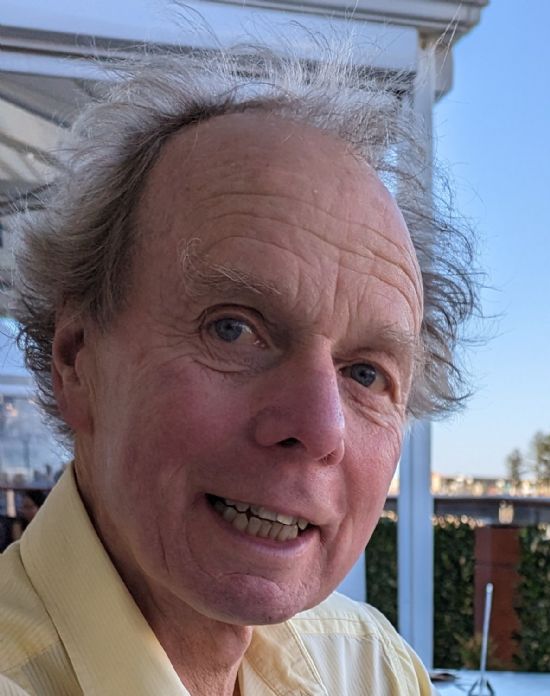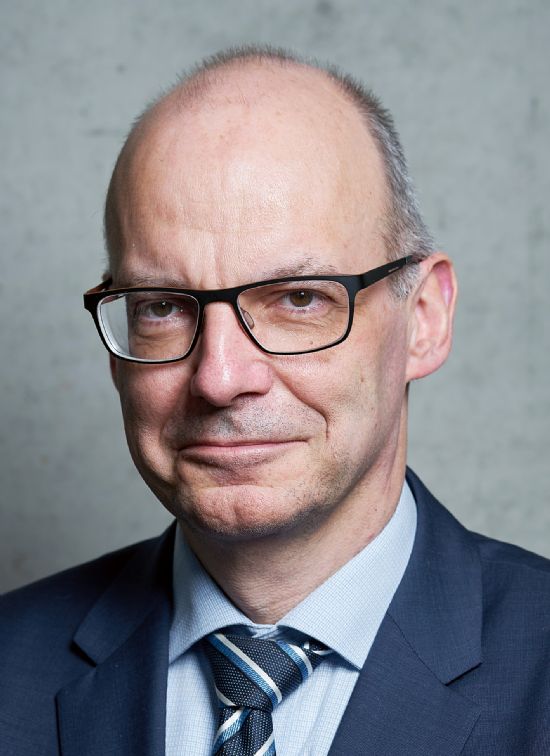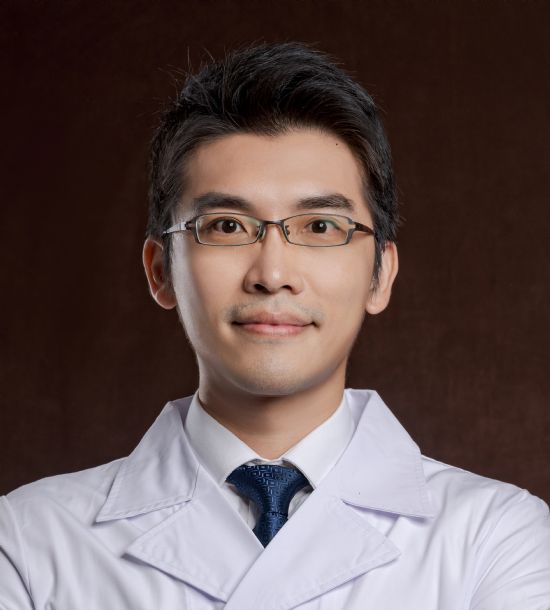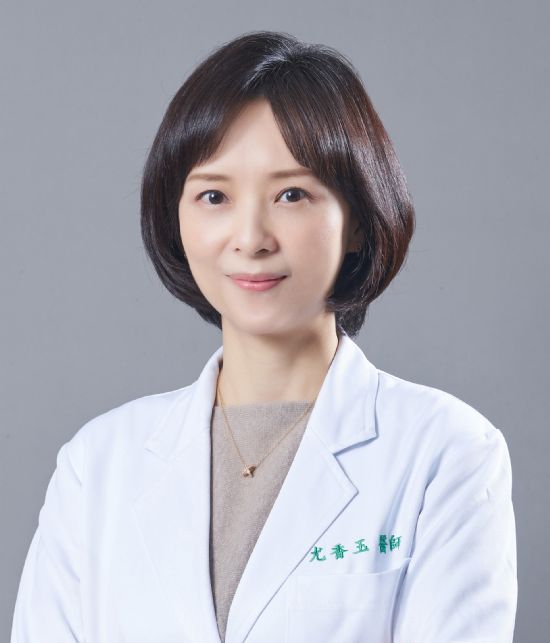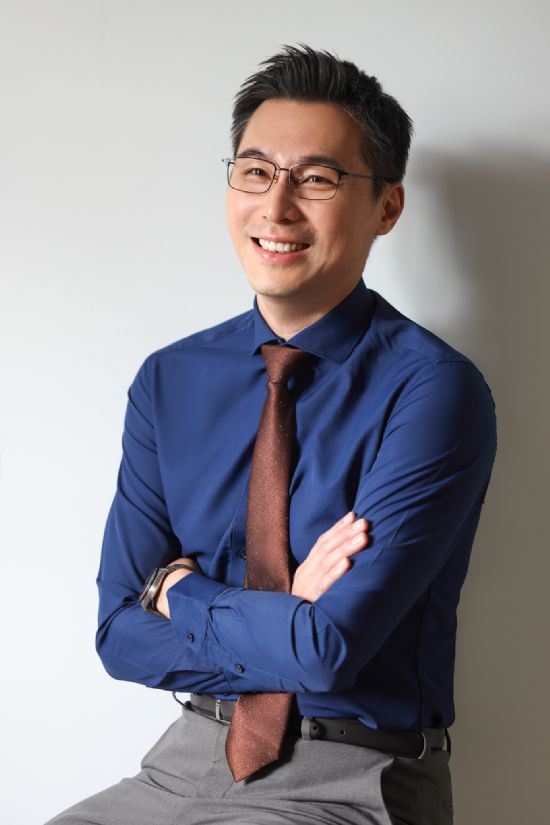Time slot's time in Taipei (GMT+8)
2025/11/22 14:00-17:30 Room 201 ABC
- SYMPOSIUM 5&9 Neuromodulation I
Non-invasive Neuromodulation: navigating the future by cutting-edge approaches
- Time
- Topic
- Speaker
- Moderator
- 14:00-14:30
- TBS: new insights for clinical applications 20 years after its innovation
- Speaker:
John Rothwell
- Moderator:
Shey-Lin Wu
- John Rothwell
- MA, PhD
-
Emeritus Professor of Human Neurophysiology, UCL Queen Square Institute of Neurology
E-mail:j.rothwell@ucl.ac.uk
Executive Summary:
John Rothwell is currently Emeritus Professor of Human Neurophysiology at UCL Queen Square Institute of Neurology. His work has focused on developing novel non-invasive methods to probe the central control of movement in health and disease, particularly in the field of movement disorders and stroke. Studies in his group provided the theoretical rationale and methodological developments underpinning the use of transcranial magnetic stimulation (TMS). They have revealed some of the details of how TMS interacts with ongoing brain activity, and have been used to devise techniques to probe synaptic connections between brain areas that are now used as biomarkers in neurological disease and movement disorders. The work has also pioneered methods of repetitive stimulation that modulate synaptic plasticity and opened up new therapeutic opportunities in neurology and psychiatry.
John Rothwell is currently Emeritus Professor of Human Neurophysiology at UCL Queen Square Institute of Neurology. His work has focused on developing novel non-invasive methods to probe the central control of movement in health and disease, particularly in the field of movement disorders and stroke. Studies in his group provided the theoretical rationale and methodological developments underpinning the use of transcranial magnetic stimulation (TMS). They have revealed some of the details of how TMS interacts with ongoing brain activity, and have been used to devise techniques to probe synaptic connections between brain areas that are now used as biomarkers in neurological disease and movement disorders. The work has also pioneered methods of repetitive stimulation that modulate synaptic plasticity and opened up new therapeutic opportunities in neurology and psychiatry.
Lecture Abstract:
TBS, a type of repetitive TMS, was first introduced into clinical neurophysiology by Ying-Zu Huang in 2005 as a modified version of the technique first used by animal physiologists in 1985 to produce synaptic plasticity in hippocampal slices of rodent brain. Ying-Zu used TBS successfully to produce LTP and LTD-like effects in human motor cortex, even including complex interactions such as depotentiation and de-depression. However, as work went on, it became evident that the effects of TBS were variable within and between individuals. Several studies have suggested that variability can be a consequence of state-dependency, such that the response depends on the excitability of the target site at the time of the stimulation. Theoretically this would be expected to pose a problem for clinical application, yet this does not seem to be the case. TBS is now a very successful tool for treating symptoms of depression, where a typical course may apply TBS several times a day for 5 consecutive days, irrespective of the “state” of the target brain site. This indicates that response variability seen in terms of effects on MEPs is not as relevant, or may be irrelevant, for treatment of depression. If so, the implication is that effects of TBS other than changes in synaptic plasticity are important in producing clinically important effects. These will be discussed in the presentation.
TBS, a type of repetitive TMS, was first introduced into clinical neurophysiology by Ying-Zu Huang in 2005 as a modified version of the technique first used by animal physiologists in 1985 to produce synaptic plasticity in hippocampal slices of rodent brain. Ying-Zu used TBS successfully to produce LTP and LTD-like effects in human motor cortex, even including complex interactions such as depotentiation and de-depression. However, as work went on, it became evident that the effects of TBS were variable within and between individuals. Several studies have suggested that variability can be a consequence of state-dependency, such that the response depends on the excitability of the target site at the time of the stimulation. Theoretically this would be expected to pose a problem for clinical application, yet this does not seem to be the case. TBS is now a very successful tool for treating symptoms of depression, where a typical course may apply TBS several times a day for 5 consecutive days, irrespective of the “state” of the target brain site. This indicates that response variability seen in terms of effects on MEPs is not as relevant, or may be irrelevant, for treatment of depression. If so, the implication is that effects of TBS other than changes in synaptic plasticity are important in producing clinically important effects. These will be discussed in the presentation.
- Time
- Topic
- Speaker
- Moderator
- 14:30-15:00
- Real-time EEG-TMS modulation of brain state in a closed-loop approach
- Speaker:
Ulf Ziemann
- Moderator:
Chon-Haw Tsai
- Ulf Ziemann
- MD
-
Director, Department of neurology and stroke, University of Tübingen, Germany
E-mail:ulf.ziemann@uni-tuebingen.de
Executive Summary:
Prof. Ulf Ziemann, MD
Director Department Neurology & Stroke, Co-Director Hertie-Institute for Clinical Brain Research, University of Tübingen, Germany.
Editor-in-Chief “Clinical Neurophysiology” (2016-2023), Deputy Editor “Brain Stimulation” (since 2007), president of the German Society of Clinical Neurophysiology 2019-2020.
Research: Motor cortex, excitability, plasticity, brain state-dependent stimulation, closed-loop stimulation, TMS-EEG neuropharmacology.
Clinical expertise: Stroke, neurorehabilitation, neuroimmunology, clinical neurophysiology.
Awards: Richard-Jung Prize German Society of Clinical Neurophysiology. NIH Merit Award. Clarivate Web of Science Highly Cited Researcher 2018, 2020-2024.
Publications: >530 peer-reviewed publications, 45 book chapters, 9 Books, Cumulative IF: >2,800, Google scholar h-index: 133, >79,000 citations.
Prof. Ulf Ziemann, MD
Director Department Neurology & Stroke, Co-Director Hertie-Institute for Clinical Brain Research, University of Tübingen, Germany.
Editor-in-Chief “Clinical Neurophysiology” (2016-2023), Deputy Editor “Brain Stimulation” (since 2007), president of the German Society of Clinical Neurophysiology 2019-2020.
Research: Motor cortex, excitability, plasticity, brain state-dependent stimulation, closed-loop stimulation, TMS-EEG neuropharmacology.
Clinical expertise: Stroke, neurorehabilitation, neuroimmunology, clinical neurophysiology.
Awards: Richard-Jung Prize German Society of Clinical Neurophysiology. NIH Merit Award. Clarivate Web of Science Highly Cited Researcher 2018, 2020-2024.
Publications: >530 peer-reviewed publications, 45 book chapters, 9 Books, Cumulative IF: >2,800, Google scholar h-index: 133, >79,000 citations.
Lecture Abstract:
TMS has been used extensively over more than three decades for treating a wide variety of brain diseases, with limited success and typically large fractions on non-responders. One critical reason for this may be that TMS protocols are non-individualized, open-loop and not considering the ongoing brain state. We have developed real-time EEG-TMS that enables brain state-dependent stimulation, and demonstrated superiority of inducing long-term plasticity in comparison with TMS protocols uninformed of instantaneous brain state. While brain state-dependent stimulation has the potential of increasing therapeutic efficacy, with randomized controlled trials underway, testing this expectation in stroke and major depressive disorder, this technology is still user-dependent, open-loop, non-adaptive, and uses only a limited EEG feature set, such as the power and phase of an ongoing oscillation. This presentation will focus on our novel machine learning-driven analyses that reveal more complex EEG feature sets for prediction of brain excitability states. It will also be demonstrated how sophisticated probabilistic deep neural networks learn to predict excitability states with remarkable accuracy. Finally, data from a first truly closed-loop adaptive real-time EEG-TMS system will be presented, showing that a deep neural network can learn fully automatically to identify high- or low-excitability states in motor cortex and then stimulate repetitively at the occurrence of these states to induce long-term changes in excitability and connectivity. These developments towards closed-loop adaptive systems, while still early-stage, have the potential to cause a paradigm shift in using brain stimulation for treating brain diseases.
TMS has been used extensively over more than three decades for treating a wide variety of brain diseases, with limited success and typically large fractions on non-responders. One critical reason for this may be that TMS protocols are non-individualized, open-loop and not considering the ongoing brain state. We have developed real-time EEG-TMS that enables brain state-dependent stimulation, and demonstrated superiority of inducing long-term plasticity in comparison with TMS protocols uninformed of instantaneous brain state. While brain state-dependent stimulation has the potential of increasing therapeutic efficacy, with randomized controlled trials underway, testing this expectation in stroke and major depressive disorder, this technology is still user-dependent, open-loop, non-adaptive, and uses only a limited EEG feature set, such as the power and phase of an ongoing oscillation. This presentation will focus on our novel machine learning-driven analyses that reveal more complex EEG feature sets for prediction of brain excitability states. It will also be demonstrated how sophisticated probabilistic deep neural networks learn to predict excitability states with remarkable accuracy. Finally, data from a first truly closed-loop adaptive real-time EEG-TMS system will be presented, showing that a deep neural network can learn fully automatically to identify high- or low-excitability states in motor cortex and then stimulate repetitively at the occurrence of these states to induce long-term changes in excitability and connectivity. These developments towards closed-loop adaptive systems, while still early-stage, have the potential to cause a paradigm shift in using brain stimulation for treating brain diseases.
- Time
- Topic
- Speaker
- Moderator
- 15:00-15:30
- Precision neuromodulation: Targeting dysfunctional circuits using brain stimulation
- Speaker:
Robin Cash
- Moderator:
Takenobu Murakami
- Robin Cash
- Dr
-
Departments of Psychiatry and Biomedical Engineering, University of Melbourne, Assistant Professor
E-mail:robin.cash@unimelb.edu.au
Executive Summary:
Dr. Robin Cash is an Assistant Professor jointly appointed in the Department of Biomedical Engineering and the Department of Psychiatry at the University of Melbourne, Australia. After completing his PhD in Neuroscience at the University of Western Australia, Dr. Cash undertook postdoctoral fellowships in Germany, the USA, and Canada, returning to Australia in 2016. Since then, he has established himself as an international leader in brain stimulation and neuroimaging, with a particular focus on advancing personalised, connectivity-guided transcranial magnetic stimulation (TMS) for therapeutic applications, particularly depression.
Dr. Cash has secured over AUD $4.5 million in competitive research funding, including an NHMRC Investigator Grant and an NHMRC Clinical Trials and Cohorts Scheme grant as CIA for a large multicentre randomised controlled trial in treatment-resistant major depressive disorder. His innovations in MRI-based TMS targeting have been translated into clinical use at sites worldwide. He is an editor of Transcranial Magnetic Stimulation. He has been fortunate to supervise a number of talented students in recent years who received a range of national and international awards during their candidature. He has co-organised major educational courses and workshops on neuroimaging-guided brain stimulation. His research has been widely profiled in the media, including a nationally broadcast feature on Channel 9 News in 2024.
Dr. Robin Cash is an Assistant Professor jointly appointed in the Department of Biomedical Engineering and the Department of Psychiatry at the University of Melbourne, Australia. After completing his PhD in Neuroscience at the University of Western Australia, Dr. Cash undertook postdoctoral fellowships in Germany, the USA, and Canada, returning to Australia in 2016. Since then, he has established himself as an international leader in brain stimulation and neuroimaging, with a particular focus on advancing personalised, connectivity-guided transcranial magnetic stimulation (TMS) for therapeutic applications, particularly depression.
Dr. Cash has secured over AUD $4.5 million in competitive research funding, including an NHMRC Investigator Grant and an NHMRC Clinical Trials and Cohorts Scheme grant as CIA for a large multicentre randomised controlled trial in treatment-resistant major depressive disorder. His innovations in MRI-based TMS targeting have been translated into clinical use at sites worldwide. He is an editor of Transcranial Magnetic Stimulation. He has been fortunate to supervise a number of talented students in recent years who received a range of national and international awards during their candidature. He has co-organised major educational courses and workshops on neuroimaging-guided brain stimulation. His research has been widely profiled in the media, including a nationally broadcast feature on Channel 9 News in 2024.
Lecture Abstract:
Emerging research indicates that many disorders are characterized by dysfunctional brain circuits. In this talk, I will introduce how this circuit-based framework has recently reshaped and improved the capacity to identify optimal brain stimulation targets for different disorders. Much of this research has been pioneered in the treatment of major depressive disorder, but appears to generalize to several other conditions that have neurobiological underpinnings. I will detail the latest findings where therapeutic outcome in depression, and other disorders, was significantly dependent on how effectively this circuit was targeted on a personalized basis. This will include the clinical outcomes of our open-label depression trial as well as an overview of the latest retrospective and prospective research in this area. It will also include comparison of differential brain circuit activation evoked by different functionally-guided targets when TMS is delivered in an MRI scanner. Lastly, I will also detail new data around the connectomic pathways mediating TMS clinical outcomes in treatment resistant depression.
Emerging research indicates that many disorders are characterized by dysfunctional brain circuits. In this talk, I will introduce how this circuit-based framework has recently reshaped and improved the capacity to identify optimal brain stimulation targets for different disorders. Much of this research has been pioneered in the treatment of major depressive disorder, but appears to generalize to several other conditions that have neurobiological underpinnings. I will detail the latest findings where therapeutic outcome in depression, and other disorders, was significantly dependent on how effectively this circuit was targeted on a personalized basis. This will include the clinical outcomes of our open-label depression trial as well as an overview of the latest retrospective and prospective research in this area. It will also include comparison of differential brain circuit activation evoked by different functionally-guided targets when TMS is delivered in an MRI scanner. Lastly, I will also detail new data around the connectomic pathways mediating TMS clinical outcomes in treatment resistant depression.
- Time
- Topic
- Speaker
- Moderator
- 16:00-16:30
- Low intensity TUS: a new era in stroke care and patient recovery
- Speaker:
Ming-Yen Hsiao
- Moderator:
Wen-shiang Chen
- Ming-Yen Hsiao
- MD, PhD
-
Attending physician, Department of Physical Medicine and Rehabilitation, National Taiwan University Hospital, Taipei, Taiwan
Associate professor, Department of Physical Medicine and Rehabilitation, College of Medicine, National Taiwan University, Taipei, Taiwan
E-mail:myferrant@gmail.com
Executive Summary:
Dr. Ming-Yen Hsiao is a clinician-scientist specializing in neuromodulation, ultrasonography, and dysphagia management. His expertise includes repetitive transcranial magnetic stimulation (rTMS), focused ultrasound brain stimulation, ultrasound-guided interventions, and flexible endoscopic evaluation of swallowing (FEES). His research focuses on non-invasive brain stimulation, including focused ultrasound neuromodulation, glymphatic modulation, and blood-brain barrier opening for drug delivery.
Dr. Hsiao is a certified interventional pain sonologist with expertise in ultrasound-guided interventions for neuromusculoskeletal disorders and extensive experience in botulinum toxin injection for spasticity management. He has authored over 100 SCI-indexed publications and contributed to multiple textbooks on musculoskeletal ultrasound, rehabilitation, and dysphagia.
Dr. Ming-Yen Hsiao is a clinician-scientist specializing in neuromodulation, ultrasonography, and dysphagia management. His expertise includes repetitive transcranial magnetic stimulation (rTMS), focused ultrasound brain stimulation, ultrasound-guided interventions, and flexible endoscopic evaluation of swallowing (FEES). His research focuses on non-invasive brain stimulation, including focused ultrasound neuromodulation, glymphatic modulation, and blood-brain barrier opening for drug delivery.
Dr. Hsiao is a certified interventional pain sonologist with expertise in ultrasound-guided interventions for neuromusculoskeletal disorders and extensive experience in botulinum toxin injection for spasticity management. He has authored over 100 SCI-indexed publications and contributed to multiple textbooks on musculoskeletal ultrasound, rehabilitation, and dysphagia.
Lecture Abstract:
Low-intensity focused ultrasound (LIFU) has emerged as a next-generation brain stimulation modality, offering high spatial precision and deep brain targeting. Two key applications have gained attention in both preclinical and clinical settings: blood–brain barrier (BBB) opening and neuromodulation.
When combined with microbubbles, LIFU enables transient, localized BBB opening, a technique currently under investigation in multiple clinical trials. Independently, LIFU without microbubbles exerts neuromodulatory effects by directly activating neurons and modulating cortical excitability. These effects have been validated in both animal models and human studies using behavioral, neurophysiological, and functional imaging assessments.
Recent studies have further revealed the ability of transcranial LIFU to enhance cerebrospinal fluid (CSF) influx through the perivascular space, suggesting its role in promoting glymphatic circulation. Given that impaired glymphatic function contributes to stroke pathology, FUS-mediated modulation of CSF dynamics presents a novel therapeutic avenue. In our photothrombotic stroke mouse model, we observed a significant reduction in CSF influx post-stroke, which was restored by daily contralesional LIFU stimulation. This intervention also reduced infarct volume and cerebral edema, while enhancing functional recovery.
In human study, patients with subacute unilateral stroke received LIFU stimulation targeting the unaffected hemisphere’s motor cortex. No adverse effects, new infarcts, or microbleeds were observed. Preliminary data demonstrated that patients showed sustained functional improvements over three months, as reflected in decreased NIHSS scores and increased FMA and Barthel Index scores.
These findings underscore the safety, feasibility, and therapeutic potential of LIFU for stroke rehabilitation. LIFU offers a unique, non-invasive neuromodulation approach that may facilitate glymphatic restoration and functional recovery, paving the way for targeted treatments in stroke and other central nervous system disorders.
Low-intensity focused ultrasound (LIFU) has emerged as a next-generation brain stimulation modality, offering high spatial precision and deep brain targeting. Two key applications have gained attention in both preclinical and clinical settings: blood–brain barrier (BBB) opening and neuromodulation.
When combined with microbubbles, LIFU enables transient, localized BBB opening, a technique currently under investigation in multiple clinical trials. Independently, LIFU without microbubbles exerts neuromodulatory effects by directly activating neurons and modulating cortical excitability. These effects have been validated in both animal models and human studies using behavioral, neurophysiological, and functional imaging assessments.
Recent studies have further revealed the ability of transcranial LIFU to enhance cerebrospinal fluid (CSF) influx through the perivascular space, suggesting its role in promoting glymphatic circulation. Given that impaired glymphatic function contributes to stroke pathology, FUS-mediated modulation of CSF dynamics presents a novel therapeutic avenue. In our photothrombotic stroke mouse model, we observed a significant reduction in CSF influx post-stroke, which was restored by daily contralesional LIFU stimulation. This intervention also reduced infarct volume and cerebral edema, while enhancing functional recovery.
In human study, patients with subacute unilateral stroke received LIFU stimulation targeting the unaffected hemisphere’s motor cortex. No adverse effects, new infarcts, or microbleeds were observed. Preliminary data demonstrated that patients showed sustained functional improvements over three months, as reflected in decreased NIHSS scores and increased FMA and Barthel Index scores.
These findings underscore the safety, feasibility, and therapeutic potential of LIFU for stroke rehabilitation. LIFU offers a unique, non-invasive neuromodulation approach that may facilitate glymphatic restoration and functional recovery, paving the way for targeted treatments in stroke and other central nervous system disorders.
- Time
- Topic
- Speaker
- Moderator
- 16:30-17:00
- Forward to the future: the pilot studies of TUS for drugs-resistant epilepsy
- Speaker:
Hsiang-Yu Yu
- Moderator:
Chin-Wei Huang
- Hsiang-Yu Yu
- MD
-
Attending Doctor, Taipei Veterans General Hospital
E-mail:alicehyyu@gmail.com
Executive Summary:
Dr. Hsiang-Yu Yu serves as the attending physician in the Epilepsy Section at the Neurologic Institute of Taipei Veterans General Hospital and is an associate professor at National Yang Ming Chiao Tung University. She previously held the roles of President of the Taiwan Epilepsy Society, Secretary General of the Taiwan Neurological Society, and Secretary General of the Taiwan Society of Clinical Neurophysiology and currently sits on the board of the Taiwan Neurological Society and the Asian Epilepsy Surgery Congress. Her clinical and research interests include women’s health issues, epilepsy surgery, neuromodulation, and intracranial EEG. Dr. Yu also leads clinical trials involving novel devices for epilepsy and has published her works in related scientific journals.
Dr. Hsiang-Yu Yu serves as the attending physician in the Epilepsy Section at the Neurologic Institute of Taipei Veterans General Hospital and is an associate professor at National Yang Ming Chiao Tung University. She previously held the roles of President of the Taiwan Epilepsy Society, Secretary General of the Taiwan Neurological Society, and Secretary General of the Taiwan Society of Clinical Neurophysiology and currently sits on the board of the Taiwan Neurological Society and the Asian Epilepsy Surgery Congress. Her clinical and research interests include women’s health issues, epilepsy surgery, neuromodulation, and intracranial EEG. Dr. Yu also leads clinical trials involving novel devices for epilepsy and has published her works in related scientific journals.
Lecture Abstract:
Epilepsy is a chronic neurological disorder, and approximately 70% of people with epilepsy (PWE) can achieve good seizure control with antiseizure medications. However, the remaining 30%, classified as having drug-resistant epilepsy (DRE), require alternative treatments such as surgery or other therapeutic approaches.
For patients with surgically remediable DRE, seizure freedom can be achieved in 60–80% of cases through surgery. For those who are not suitable candidates for resective surgery, neuromodulation is a potential option. Currently approved neuromodulation therapies for epilepsy—such as vagus nerve stimulation (VNS), deep brain stimulation (DBS), and responsive neurostimulation (RNS)—require device implantation, which carries risks of complications such as bleeding, infection, and device malfunction.
Transcranial focused ultrasound (tFUS) is an emerging treatment modality for various neurological disorders. It has already been validated for the treatment of essential tremor and Parkinson’s disease through its lesioning capabilities. tFUS holds promise as a less invasive treatment option for DRE, as it does not require surgical incisions.
Preclinical studies have demonstrated that tFUS can reduce seizure activity in both acute and chronic epilepsy animal models. Additionally, several recent human studies have reported a reduction in seizure frequency following tFUS lesioning of targeted brain regions. tFUS has also shown encouraging results in modulating brain activity to help control seizures in people with epilepsy.
At our institution, we are currently conducting clinical trials investigating the use of tFUS in epilepsy treatment, exploring both its lesioning and neuromodulation effects. In this presentation, I will share preliminary data from these trials and discuss the potential future applications of tFUS in the clinical management of epilepsy.
Epilepsy is a chronic neurological disorder, and approximately 70% of people with epilepsy (PWE) can achieve good seizure control with antiseizure medications. However, the remaining 30%, classified as having drug-resistant epilepsy (DRE), require alternative treatments such as surgery or other therapeutic approaches.
For patients with surgically remediable DRE, seizure freedom can be achieved in 60–80% of cases through surgery. For those who are not suitable candidates for resective surgery, neuromodulation is a potential option. Currently approved neuromodulation therapies for epilepsy—such as vagus nerve stimulation (VNS), deep brain stimulation (DBS), and responsive neurostimulation (RNS)—require device implantation, which carries risks of complications such as bleeding, infection, and device malfunction.
Transcranial focused ultrasound (tFUS) is an emerging treatment modality for various neurological disorders. It has already been validated for the treatment of essential tremor and Parkinson’s disease through its lesioning capabilities. tFUS holds promise as a less invasive treatment option for DRE, as it does not require surgical incisions.
Preclinical studies have demonstrated that tFUS can reduce seizure activity in both acute and chronic epilepsy animal models. Additionally, several recent human studies have reported a reduction in seizure frequency following tFUS lesioning of targeted brain regions. tFUS has also shown encouraging results in modulating brain activity to help control seizures in people with epilepsy.
At our institution, we are currently conducting clinical trials investigating the use of tFUS in epilepsy treatment, exploring both its lesioning and neuromodulation effects. In this presentation, I will share preliminary data from these trials and discuss the potential future applications of tFUS in the clinical management of epilepsy.
- Time
- Topic
- Speaker
- Moderator
- 17:00-17:30
- Patterned stimulation protocol of TUS and its application in movement disorders
- Speaker:
Kai-Hsiang Stanley Chen
- Moderator:
Robert Chen
- Kai-Hsiang Stanley Chen
- MD
-
Deputy Director of Neurology Department , National Taiwan University Hospital Hsinchu Branch
E-mail:stanleychen1230@gmail.com
Executive Summary:
Dr. Chen graduated from Taipei Medical University and completed his neurological residency training at National Taiwan University Hospital in Taipei. Since 2012, he has served as an attending physician and movement disorder specialist in the Department of Neurology at National Taiwan University Hospital Hsinchu Branch.
Dr. Chen acquired expertise in microelectrode recording and clinical deep brain stimulation (DBS) techniques under the guidance of Dr. Chun-Hwei Tai at National Taiwan University Hospital (NTUH) and established DBS system of NTUH Hsinchu in 2015. In the field of non-invasive neurostimulation, he has conducted extensive research on transcranial magnetic stimulation (TMS) and patterned repetitive TMS (rTMS) in collaboration with Professor Ying-Zu Huang from 2016. In addition to his clinical expertise, Dr. Chen pursued a research fellowship in Professor Robert Chen’s lab at the Krembil Brain Institute, University of Toronto from 2018 to 2019. His primary research interests focus on neuromodulation and electrophysiological assessment of movement disorders, utilizing techniques such as DBS, TMS, and low-intensity transcranial focused ultrasound (TUS). Additionally, he has explored the cortical plasticity effects of TUS and developed a novel patterned repetitive TUS protocol in collaboration with Professor Robert Chen.
In 2020, Dr. Chen established his clinical neurophysiology lab, integrating electrophysiological assessments with advanced equipment, including multi-channel EMG, EEG, single/paired TMS, rTMS, evoked potentials, and gait analysis. His research encompasses a broad spectrum of movement disorders, such as parkinsonism, tremor, dystonia, functional movement disorders, and gait abnormalities.
Dr. Chen has published numerous influential articles on the principles of electrophysiology in movement disorders and human cortical physiological function. He currently serves as the Deputy Director of the Department of Neurology at National Taiwan University Hospital Hsinchu Branch.
Dr. Chen graduated from Taipei Medical University and completed his neurological residency training at National Taiwan University Hospital in Taipei. Since 2012, he has served as an attending physician and movement disorder specialist in the Department of Neurology at National Taiwan University Hospital Hsinchu Branch.
Dr. Chen acquired expertise in microelectrode recording and clinical deep brain stimulation (DBS) techniques under the guidance of Dr. Chun-Hwei Tai at National Taiwan University Hospital (NTUH) and established DBS system of NTUH Hsinchu in 2015. In the field of non-invasive neurostimulation, he has conducted extensive research on transcranial magnetic stimulation (TMS) and patterned repetitive TMS (rTMS) in collaboration with Professor Ying-Zu Huang from 2016. In addition to his clinical expertise, Dr. Chen pursued a research fellowship in Professor Robert Chen’s lab at the Krembil Brain Institute, University of Toronto from 2018 to 2019. His primary research interests focus on neuromodulation and electrophysiological assessment of movement disorders, utilizing techniques such as DBS, TMS, and low-intensity transcranial focused ultrasound (TUS). Additionally, he has explored the cortical plasticity effects of TUS and developed a novel patterned repetitive TUS protocol in collaboration with Professor Robert Chen.
In 2020, Dr. Chen established his clinical neurophysiology lab, integrating electrophysiological assessments with advanced equipment, including multi-channel EMG, EEG, single/paired TMS, rTMS, evoked potentials, and gait analysis. His research encompasses a broad spectrum of movement disorders, such as parkinsonism, tremor, dystonia, functional movement disorders, and gait abnormalities.
Dr. Chen has published numerous influential articles on the principles of electrophysiology in movement disorders and human cortical physiological function. He currently serves as the Deputy Director of the Department of Neurology at National Taiwan University Hospital Hsinchu Branch.
Lecture Abstract:
Transcranial focused ultrasound (TUS) is an emerging technique for noninvasive modulation of brain activity. Unlike high-intensity focused ultrasound lesioning approaches, low-intensity TUS can either inhibit or facilitate neural activity without causing tissue damage at the focal epicenter. When delivered in patterned, repetitive trains to the human motor cortex, TUS has been shown to induce after-effects resembling long-term potentiation or long-term depression. However, the underlying mechanisms and the stimulation parameters that determine these modulatory effects remain unclear. Importantly, TUS can reach deep brain structures that are inaccessible to other noninvasive neuromodulation tools such as transcranial magnetic stimulation (TMS) or transcranial direct current stimulation (tDCS). This unique capability positions TUS as a promising therapeutic strategy for movement disorders. In this session, we will review current patterned TUS protocols, discuss potential mechanisms, and explore future clinical applications in movement disorders.
Transcranial focused ultrasound (TUS) is an emerging technique for noninvasive modulation of brain activity. Unlike high-intensity focused ultrasound lesioning approaches, low-intensity TUS can either inhibit or facilitate neural activity without causing tissue damage at the focal epicenter. When delivered in patterned, repetitive trains to the human motor cortex, TUS has been shown to induce after-effects resembling long-term potentiation or long-term depression. However, the underlying mechanisms and the stimulation parameters that determine these modulatory effects remain unclear. Importantly, TUS can reach deep brain structures that are inaccessible to other noninvasive neuromodulation tools such as transcranial magnetic stimulation (TMS) or transcranial direct current stimulation (tDCS). This unique capability positions TUS as a promising therapeutic strategy for movement disorders. In this session, we will review current patterned TUS protocols, discuss potential mechanisms, and explore future clinical applications in movement disorders.

